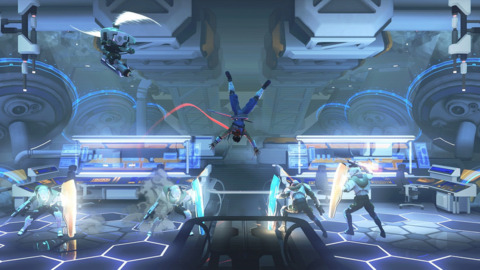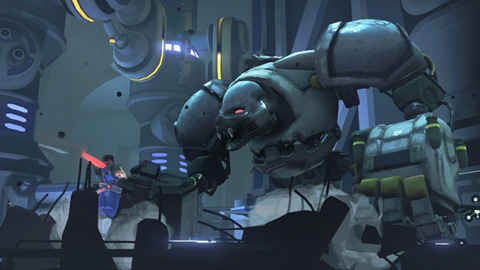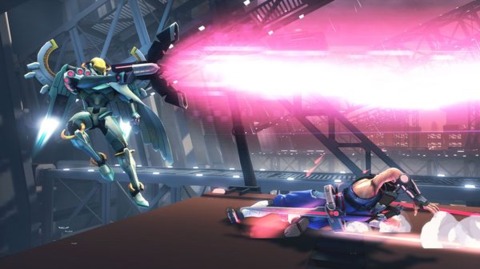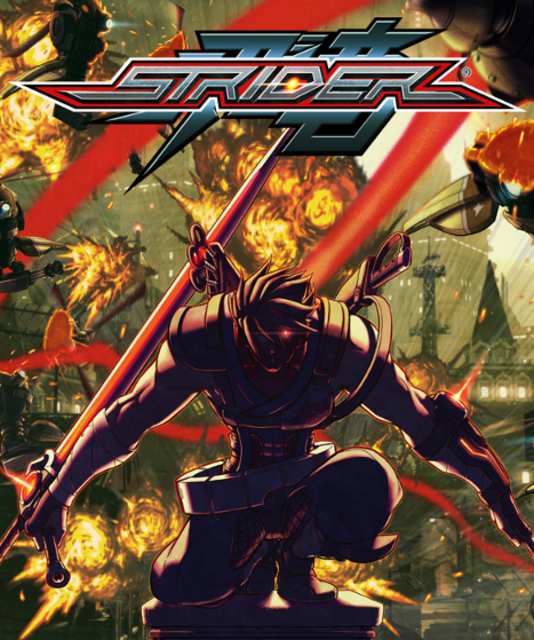Double Helix has breathed new life into the seldom-seen but much-loved Strider franchise
The general nature of classic franchise reboots is dubious at best, or a total disaster at worst. There's a wrong way to do them, and there's the right-and some might say safer-way. Luckily Double Helix's take on Strider falls well into the latter camp. The blazing-fast action of the originals made it an enticing candidate, one that happened to translate pretty well into a modern game. New ground isn't tread in the 2014 Strider, but it pulls almost everything off with such style and grace that an expected lack of innovation is easily forgiven.

Strider 2014 actually pulls quite a number of elements from the arcade original, including environments, bosses, music, and the paper-thin story. Where it diverges, though, is that it's not a purely linear level-based affair, but rather structured after the likes of Metroid and Castlevania. Hmm, you know what? Someone should really come up with a term that describes that kind of design. You, as Strider Hiryu, are placed in the dystopian Kazahk City and are simply instructed with eliminating the oppressive Grandmaster Meio. You can explore the city at your leisure, and the environments aren't terribly varied unfortunately, but many areas are gated off until you gain the required ability to access them, leaving room for plenty of backtracking along the way. It's familiar for sure, but it turned out to be a comfy fit with the frenetic action.
The action that makes up the core gameplay is as solid, satisfying and smooth as can possibly be. A Strider game wouldn't be worth playing otherwise. The act of simply playing the game brings a distinct and undeniable pleasure that few games manage. It just feels...right. You can swing your sword as fast as you can mash the attack button, so expect some sore thumbs. Leaping through the air and climbing walls is also fast, making the entire gameplay loop breezy fun. The standard action is continually broken up in the form of boss fights. They occur pretty regularly, about every 20 minutes or so, and take many forms, including ninjas and large robotic dragons, tanks, and gorillas. I really enjoyed most of the fights and the fact that there were so many of them. The fights against larger opponents tended to be more spectacular while the smaller-scale fights were a bit more demanding of skill.

Quick sword-play and platforming is accompanied by some sharp sound design. All of the effects, from hitting enemies to jumping to the clanging of the hooks you use to climb up walls sound incredibly crisp and all add another layer to the addicting action. There is voice acting, though while sporadic, it is delightfully corny in all the right ways. When I could hear the music, it sounded fine, but the mixing on it is poor, causing it to be drowned out by the other sounds.
The ability-collecting and adventuring aspect is somewhat less thrilling than the action that accompanies it, as well as less compelling than other games of the ilk such as Shadow Complex or the Castlevania series. It is, however, good enough to make most of it seem meaningful. Early on, you get the ability to slide, parry bullets with your sword, and throw ninja daggers. Farther into the game, you gain elemental attacks for your blade, like explosive and freeze damage, which will also help you unlock new doors. These don't change the combat a great deal, but they are still useful in many situations, mostly because late game enemies will have shields that can only be broken with a specific element. There are also a few summoning abilities at your disposal for when battles get a little too heated. The disk-throwing summon I found to be of great use and great fun, though none of the summons are essential to winning. There's a wealth of secrets to uncover, as well, including unlockable levels for survival and platforming time-trials. These bonus modes aren't the most exciting parts of the game, but it's nice that they're there.

Hundreds of robotic solidiers and turrets of varying sizes will fall by your blade, though the game rarely presents that stiff of a challenge on the normal difficulty. I probably died less than 10 times in the 5 hours it took me to finish the game. A lot of the late-game enemies have a tendency to stun-lock you often, but that felt like more like an unfair annoyance rather than a good challenge. If you're looking for something a little less forgiving, starting on the hard difficulty setting on your first go around is recommended.
Regardless of the difficulty, I found Strider to be an absolute blast from beginning to end. It does justice to the original titles while also dressing it in a formula new to the series. It definitely works in the game's favor and keeps the upgrades and boss fights flowing almost non-stop. Anyone in search of a new combat-heavy sidescroller worthy of your time, Strider will almost certainly scratch that itch.
